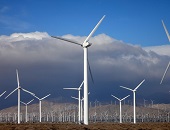Decarb Economics 101
To mitigate the consequences of climate change, the world requires international coordination. In 2015, the Paris Agreement was signed by 195 nations. Its long-term temperature goal is to keep the rise in mean global temperature to well below 2°C (3.6 °F) above pre-industrial levels, and preferably limit the increase to 1.5 °C (2.7 °F), which would reduce the worst effects of climate change. Many countries are developing policies to get themselves on a path toward achieving the agreed-upon 1.5 °C goal. Although present progress may seem piecemeal, in the words of a Chinese proverb, “A great journey begins with a single step.” The figure below […]
More Leaves than Grapes?
Who says the market on old books is in a downward spiral? Luca Pacioli wrote the definitive treatise Summa de Arithmetica, Geometrisa, Proportioni et Proportionalita and published it in Venice in 1494. On June 12, 2019, Christie’s put up one copy for auction. (The starting price was one million USD; it eventually sold for 1.2 million USD.) Experts estimate 120 copies of this book still exist. An image of a typical page, reproduced here, shows its type font is somewhat less readable than the modern accounting textbook. Summa de Arithmetica was widely read and used at the time. It contains real-life examples, […]
“The Death of the Soul”
Do you long for the good old days? What, exactly, were “the good old days”? Depends on your time horizon. Today’s excerpt comes from page 11 of Economic Thought: A Brief History by Heinz D. Kurz, translated by Jeremiah Riemer (Columbia University Press, 2016). “According to Scholastic economic thought, the answer to the material hardship experienced by large segments of the [medieval European] population was not higher production and economic growth but self-restraint and the repression of needs. “The heart of Scholasticism was the doctrine concerning usury. A core argument was that money is sterile—it cannot “breed offspring.” Another argument […]
“Worse Than Silverfish”
Some authors go to great lengths to make their monographs up-to-the-moment. In this excerpt, the authors refer to a popular and critically acclaimed TV series. It’s a calculated risk. They use an obsession of the (fictional) characters—the money they are amassing—to tie into the very real phenomenon of hyperinflation. Today’s excerpt comes from page 103 of the book The Evolution of Money by David Orrell and Roman Chlupaty (Columbia University Press, 2016). “To visualize how hyperinflation can affect one’s personal savings, fans of the TV show Breaking Bad will recall the episode in season 5 in which it is shown […]
War, Kidnapping, Data Theft
War, kidnapping, and data theft: Is it some fiction pot-boiler that’s come over the transom? No, it’s the chapter on how the gross domestic product (GDP) came into being in Germany. Today’s excerpt comes from pages 117-8 of the book The Power of a Single Number: A Political History of GDP by Philipp Lepenies, translated by Jeremy Gaines (Columbia University Press, 2016). “[John Kenneth] Galbraith was surprised by the results of his calculations and surveys because they, for the first time, provided a clear picture of the Nazi economy. Because no set of tools comparable to gross national product calculation existed on […]





